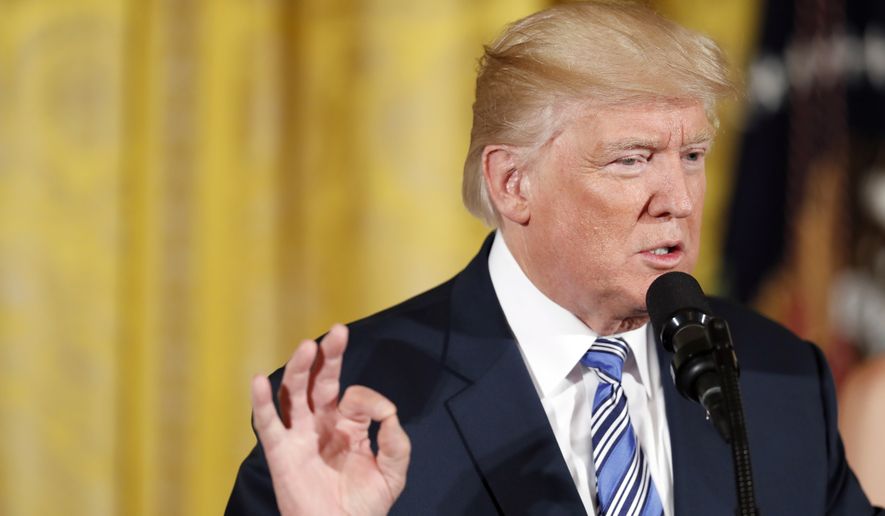President Trump may be facing a roadblock on the rest of his nominees — but he’s outpacing his predecessors when it comes to getting federal judges confirmed, with his fifth court pick approved by the Senate on Tuesday.
Alabama lawyer Kevin Christopher Newsom was confirmed to a seat on the 11th U.S. Circuit Court of Appeals on a 66-31 vote, with 16 Democrats joining the GOP.
He’s the third circuit judge approved so far, and combined with one district judge and Supreme Court Justice Neil M. Gorsuch, puts the president and the GOP-led Senate well ahead of pace.
By comparison, President Obama had zero judges confirmed in his first six months and it took him until November of 2009 to get three circuit court nominees cleared through the Senate.
President George W. Bush had one circuit judge and two district judges confirmed by August of his first term.
“The Trump administration has moved faster on filling judicial vacancies compared to the past administrations, thanks to its commitment to working with and extensively consulting all senators, regardless of political affiliation, to select high-caliber nominees,” said Kelly Love, a White House spokesperson.
Mr. Trump has roughly 137 federal court vacancies to fill and he has announced a total of 28 judicial picks — far more than Mr. Obama at this point, though slightly behind the pace of Mr. Bush.
“The president has his work cut out for him, but reshaping the judiciary by appointing constitutionalist judges may well become the defining feature and most lasting legacy of the Trump administration,” said John Malcolm, legal and judicial studies director for the Heritage Foundation.
Although Mr. Newsom was the president’s fifth confirmed judicial pick, Mr. Trump still has more than a dozen nominees waiting to be cleared by lawmakers. According to the administration’s count, there are seven circuit court nominees and 17 district court nominees pending in the Senate.
Conservatives blame Democratic senators for slow-walking the confirmation process. Democrats say they’re not obstructing, but instead, vetting the judicial records of Mr. Trump’s federal court picks.
The top Democrat on the Judiciary Committee, California’s Sen. Dianne Feinstein, backed Mr. Newsom’s nomination. But she warned Democrats will insist on more consultations when it comes to nominees from their home states. Known as the blue slip tradition, consultation with home-state senators has emerged as a sticking point for some of Mr. Trump’s judicial picks.
“Many of the current nominees have voluminous records, and we need to allow home-state senators to do their work,” Ms. Feinstein said on Monday.
Mr. Newsom enjoyed bipartisan support early on, receiving an 18-2 vote out of the Senate Judiciary Committee last month.
“As Chairman Grassley pointed out prior to that vote, several lifelong Democrats and Republicans have penned letters to the committee touting Mr. Newsom’s ’professionalism and qualifications,’” said Senate Majority Leader Mitch McConnell, Kentucky Republican.
Mr. Newsom has experience in private practice as well as government work, where he previously served as Alabama’s solicitor general. He has experience arguing before the Supreme Court and he clerked for former Supreme Court Justice David Souter. He graduated from Harvard Law School.
The 11th Circuit covers Alabama, Georgia and Florida.
• Alex Swoyer can be reached at aswoyer@washingtontimes.com.




Please read our comment policy before commenting.